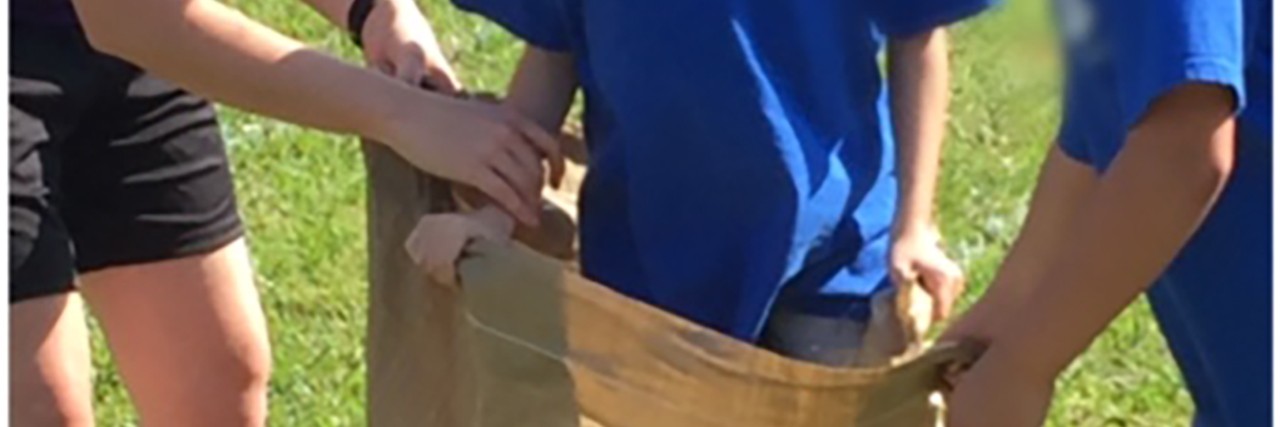What My Daughter With Sanfilippo Syndrome and Her Classmates Taught Me About Field Day
A recent experience at my daughter’s field day has once again reminded me of how accepting children can be of others who are different from them.
Abby’s field day notice came home with the activities listed that she would be participating in on the following day. Golf ball on a spoon relay, the sack race relay and tug of war… I was immediately concerned. She likes to sing, dance and cheer, but she is not very athletic. Field day can be hard-core and very competitive. I did have a short, fleeting moment of relief when Abby told me they practiced at school, but I was still worried for her.

Due to her diagnosis of Sanfilippo syndrome, Abby is fighting an uphill battle in life. At 11 years old, she is developmentally delayed. Her disease causes neurological deterioration over time, with a typical life expectancy of 10-20 years old. Physically, she experiences low endurance and decreased coordination, which led to my concern for her field day performance.
First up on field day, golf ball on a spoon relay. Abby had competed in this before and used her technique successfully. It was quite simple; she held the ball in place on the spoon with her thumb on top. She moved pretty quickly and never dropped her ball. Her class came in third; not too bad, I thought.
Next was the sack race relay. My worry grew as I looked at the wet grass and the distance she had to travel. How in the world would she be able to hold up her sack and hop on wet grass at the same time? I was worried she would fall or not even be able to finish due to her lack of endurance. The race started and her classmates were doing well in the relay. Then came Abby’s turn. I was pleasantly surprised to see a teacher and her best friend following along beside her. They stayed with her during every hop she took. They kept her focused and encouraged her to continue.
It was obvious that her class was not going to win this event. Abby had fallen behind the other teams. As I cheered her on, I realized that all of her classmates were cheering just as loud. They knew their class was going to finish last, but they didn’t care. They seemed genuinely happy that Abby was able to participate and wanted her to finish the race. The sound of the students cheering for her, calling out her name, made my heart full. I started to feel tears build as I thought about how amazing her classmates were.
At that moment I realized their love for her and acceptance of her far outweighed their desire to win.

They wanted her to succeed, to feel confident and be included. They wanted her to finish the race. They wanted her to be on their team. She beamed from ear to ear, proud of her accomplishment of crossing the finish line. She knew no difference between winning and losing, only trying her best.
The last event was the tug of war. I was initially worried about her falling and being trampled on. I soon realized my fears were unfounded. There were no injuries, just a happy little girl participating proudly in an event with her classmates. She was happy to be a part of the team and included in the big, final competition. Her class lost the tug of war, but has won in so many other ways.
Abby’s classmates have been her biggest fans and cheerleaders. They have looked past her differences and accepted her with open hearts. They have nurtured her, loved her and protected her. They have included her and wanted to build her up. Their inclusion has helped build her confidence and her willingness to try new things.
Acceptance and tolerance of others are two of the best qualities they can possess. I am so proud of them and hope their parents know the positive impact they have had in Abby’s life.
Learn more about Abby and Sanfilippo syndrome.
This blog and more from the author can be found at Strengthening the Soul.
The Mighty is asking the following: Tell us about a time someone went out of his or her way to make you and/or your child feel included or not included. Check out our Submit a Story page for more about our submission guidelines.

